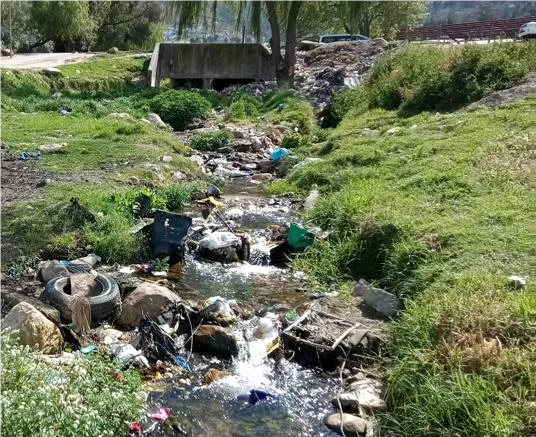Water-Hub project in Western-Cape Province, South Africa

informal settlements.
This pre-feasibility study will apply an integrated Water-Energy-Food (WEF) Nexus approach to examine appropriate nature-based technologies that can expand the scope of the current activities to recover reclaimed water and other resources in the context of informal settlements, at the research site “The Water Hub” in Franschhoek, Western Cape.
This project will contribute to the improvement in water, energy and food security in the Western Cape Province while protecting the environment and regenerating ecosystem services, hence helping to achieve the UN SDGs. As such the project’s Nexus approach will take WEF as the starting point, but explicitly includes other relevant sectors such as waste and ecosystem services as a basis for a just transition to a circular economy. TUM will be collaborating with three other project partners in the execution of the study, namely, the Bavarian State Ministry of the Environment and Consumer Protection (StMUV) in Germany, as well as the Western Cape Government, Department of Environmental Affairs and Development Planning (DEA & DP) and the University of Cape Town in South Africa (UCT).
The main objectives of the prefeasibility study are to assess opportunities for resource recovery at the Water-Hub. This includes the examination of water quality and the effectiveness of currently implemented nature-based treatment methods and the implementation of further solutions such as sequential managed aquifer recharge technology (SMART). Further, the project will examine the feasibility of water reclamation and reuse, assess energy recovery through anaerobic co-digestion of different feed stocks, support development of business plans for entrepreneurship opportunities from organic (food) waste-to-energy streams, nutrient recovery (organic fertilizer) etc., and serving local markets. Additionally, benefits for ecosystem services regeneration by deploying this Nexus approach will be assessed and knowledge dissemination and capacity building among project partners and stakeholders will be fostered due to the enabling environment provided by the Living Lab concept of the Water Hub.